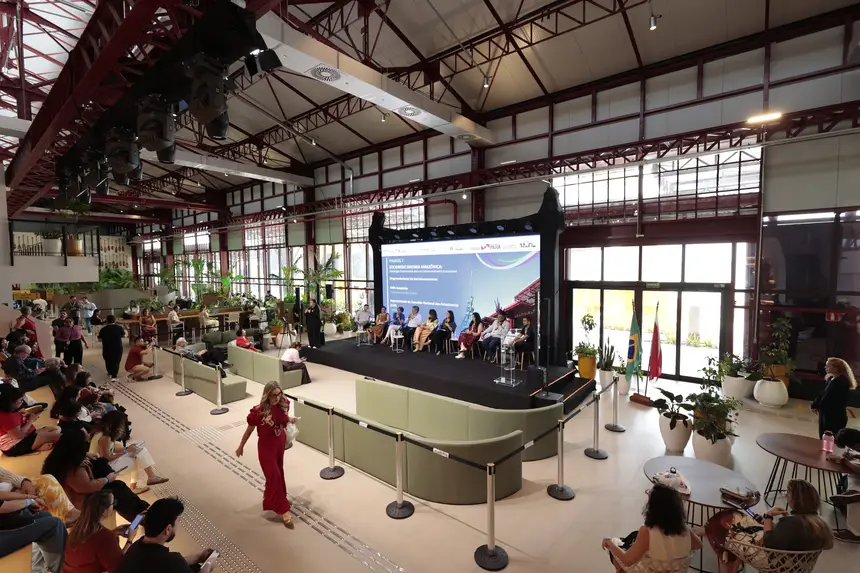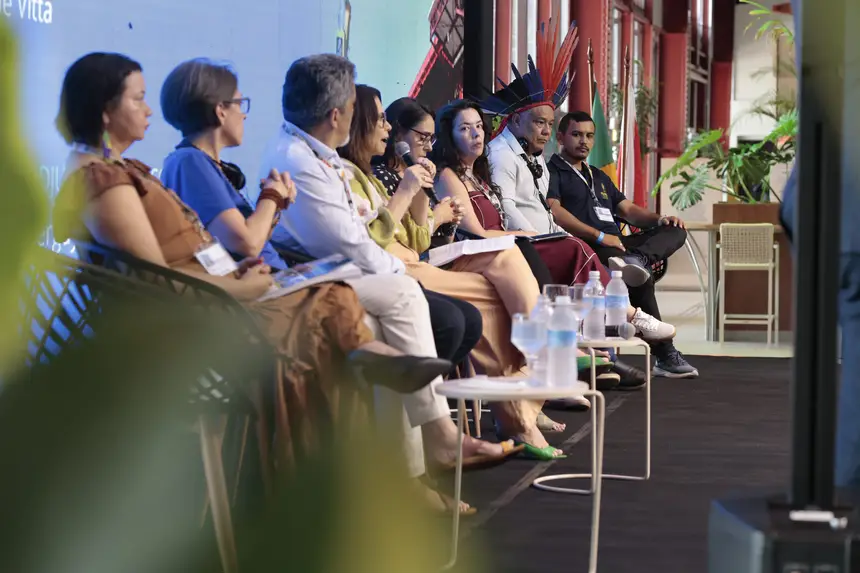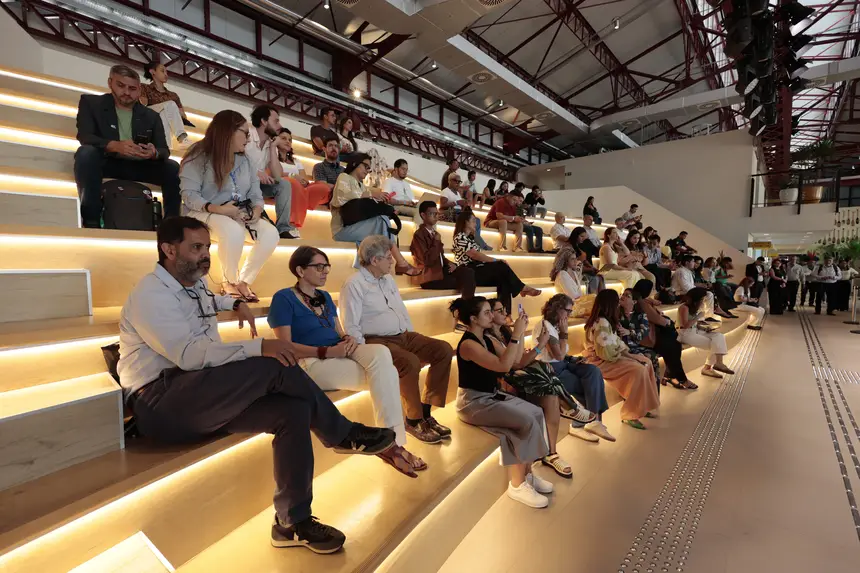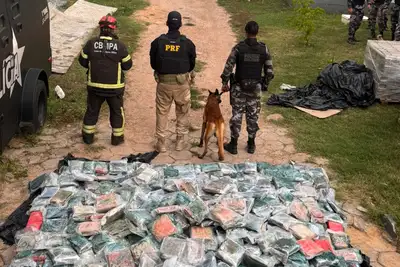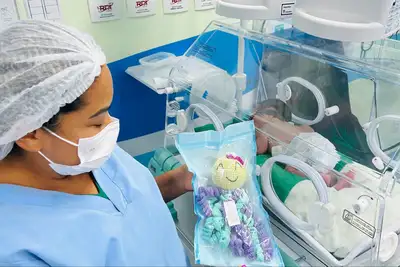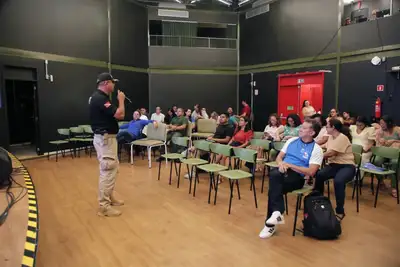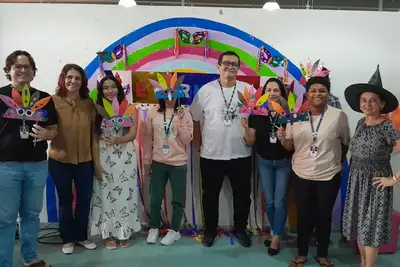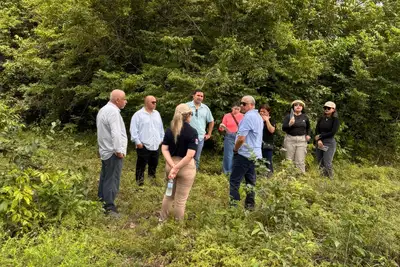Forum on Bioeconomy Establishes Pará as a Reference in Sustainable Development in the Amazon
The event marked the official opening of the programming of the Amazon Bioeconomy and Innovation Park, at Porto Futuro
The Government of Pará reaffirmed, this Tuesday (11), its leading role in the agenda of sustainable development and economy and in valuing the Amazon during the "Forum Connections for Bioeconomy: Unlocking Paths for Low Carbon Development," an event that officially opened the programming of the Amazon Bioeconomy and Innovation Park, at Porto Futuro, in Belém.
Promoted by the State Secretariat for Environment, Climate and Sustainability (Semas), the Forum brought together representatives from the public sector, financial institutions, researchers, entrepreneurs, and traditional communities, consolidating Pará as the main hub of opportunities for low carbon development in the Amazon region.
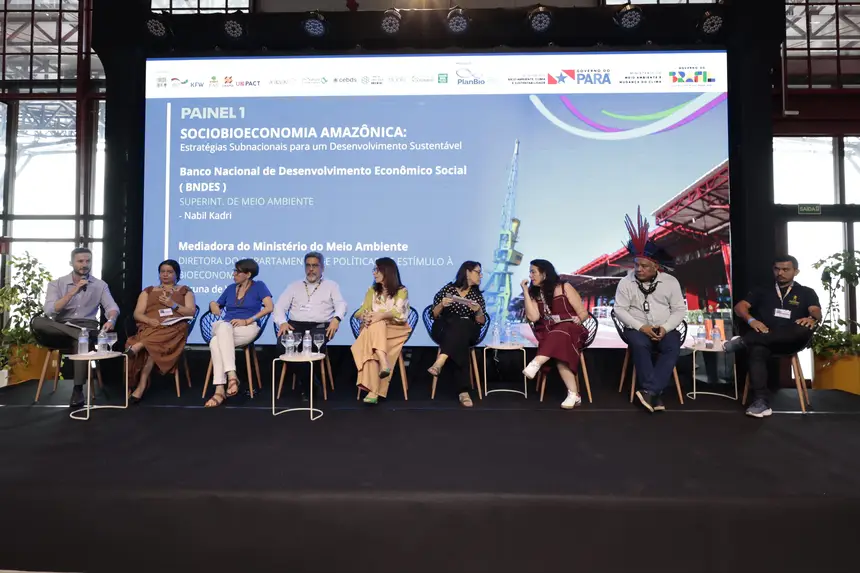
At the opening of the event, the Deputy Secretary of Bioeconomy of Semas, Camille Bemerguy, highlighted the role of Amazonian states in consolidating sustainable policies and valuing the living forest. "Subnational governments play a strategic role in promoting bioeconomy and sociobioeconomy because it is in the territories that it happens. Promoting debates like this is an opportunity to dream together of a prosperous, just, and well-lived Amazon for everyone," said Camille Bemerguy.
She emphasized that the Amazon Bioeconomy and Innovation Park materializes the State's commitment to creating an ecosystem of sustainable and innovative businesses. "This space is, at the same time, an environment of innovation and a territory of learning, where community businesses, startups, and industries coexist. It is the meeting between tradition and innovation, based on science, technology, and cooperation between governments and communities," added the deputy secretary.
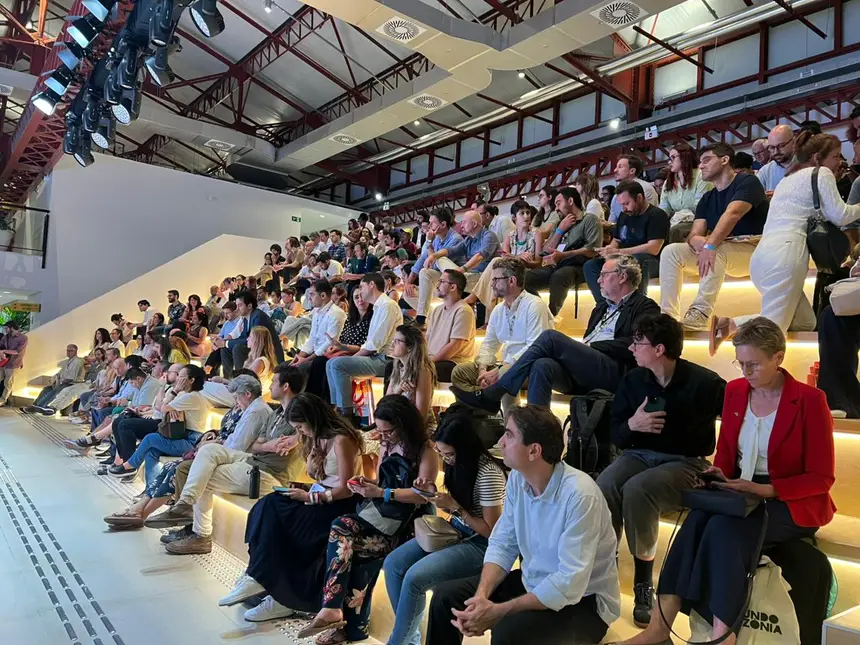
Panels and Launches - During the event, thematic panels addressed subnational strategies for sustainable development, integration of data and knowledge in bioeconomy, and financing models for community businesses, gathering representatives from the Ministry of Environment and Climate Change, United Nations Development Programme (UNDP), German Development Bank (KfW), British Embassy, National Council of Extractive Populations (CNS), and partner institutions.
The programming was also marked by the launch of new structuring initiatives of the state bioeconomy policy, which are part of "Realiza Pará," including the Bioeconomy Tourist Showcase and Route, which value sustainable products and itineraries in 11 municipalities; the Tekoà Social Gastronomy Center, aimed at training entrepreneurs and valuing Amazonian cuisine; the Sociobio House, a support space for community businesses, resulting from cooperation with the British Government; the Forest Knowledge School, focused on education and innovation in sociobioeconomy; the second edition of the Inova Sociobio Program, which will invest R$ 3.4 million in strengthening 20 new community enterprises of sociobiodiversity, and the launch of the Prospera Sociobioeconomy Program, from the Ministry of Environment and Climate Change, which creates territorial nuclei for the development of sociobioeconomy in the Amazon.
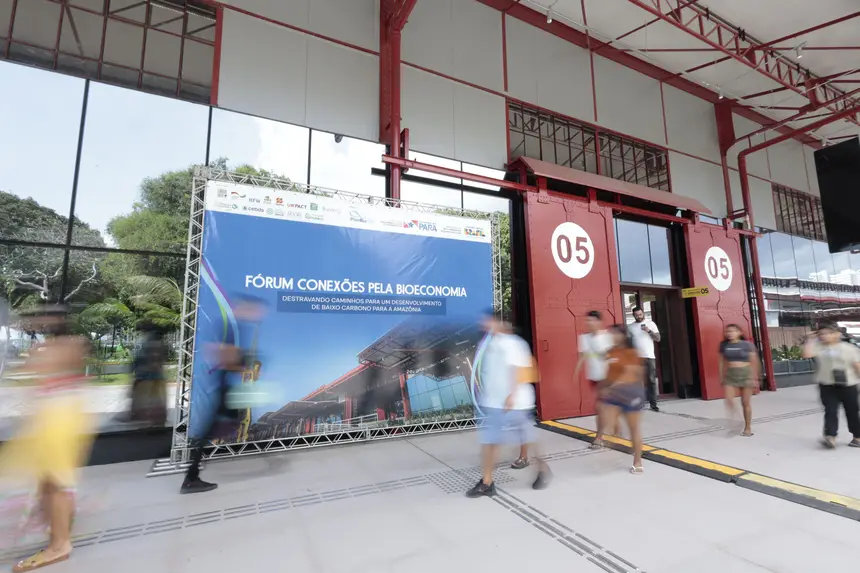
Autonomy - During the panel, Antônio Brito, representative of CNS, reported the impacts of "Inova Sociobio" on Amazonian communities. "From 'Inova', we managed to organize cooperatives, structure production, and strengthen our autonomy in the territories. It is support that transforms reality and strengthens those who live from the forest," he highlighted.
Throughout the programming, the debates reinforced the importance of cooperation between governments, civil society, and the productive sector to strengthen a low carbon economic model in the Amazon. "We are in an Amazon that is no longer the future: it is a present that is already working. We have much to show and celebrate with the world," concluded Camille Bemerguy.
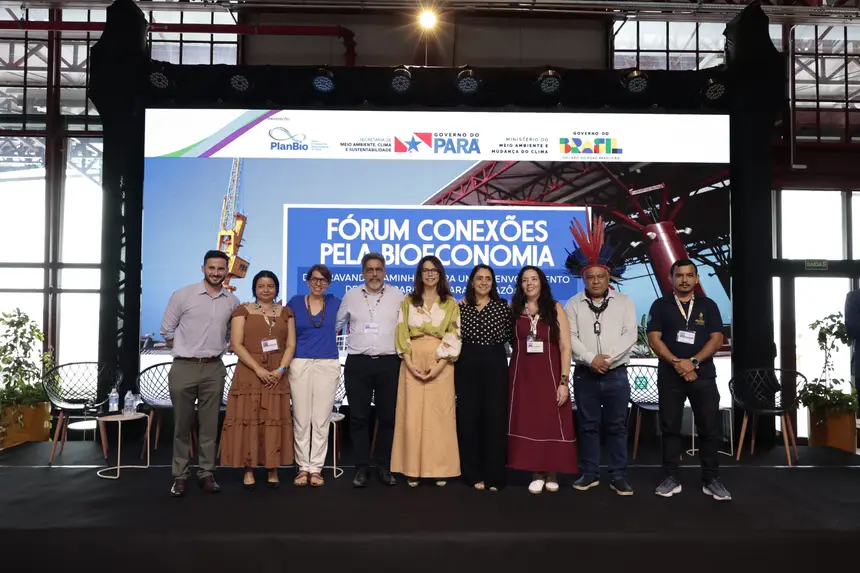
The programming included representatives from various partner institutions, such as the Sustainable Amazon Foundation (FAS), Trama Projetos, The Nature Conservancy (TNC), Moore Foundation, KfW Bank, British Embassy, Eastern Amazon Fund (FAO), and other entities that support initiatives aimed at ecological transition and sociobioeconomy.


